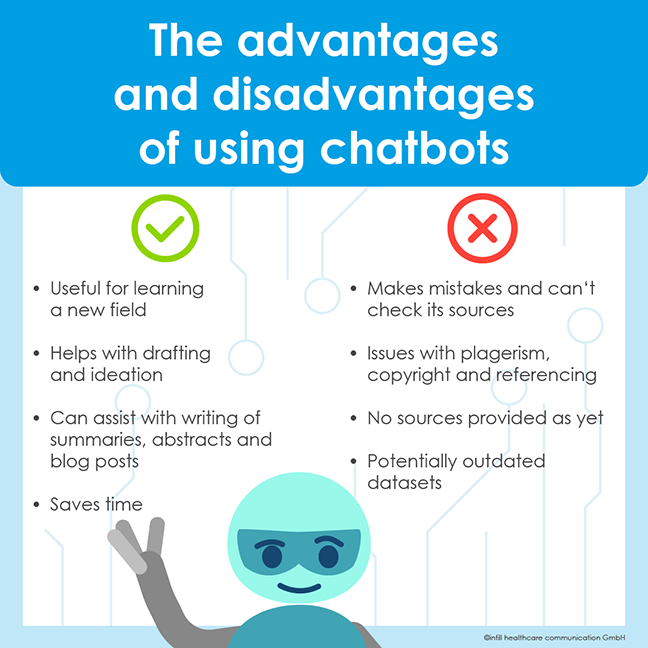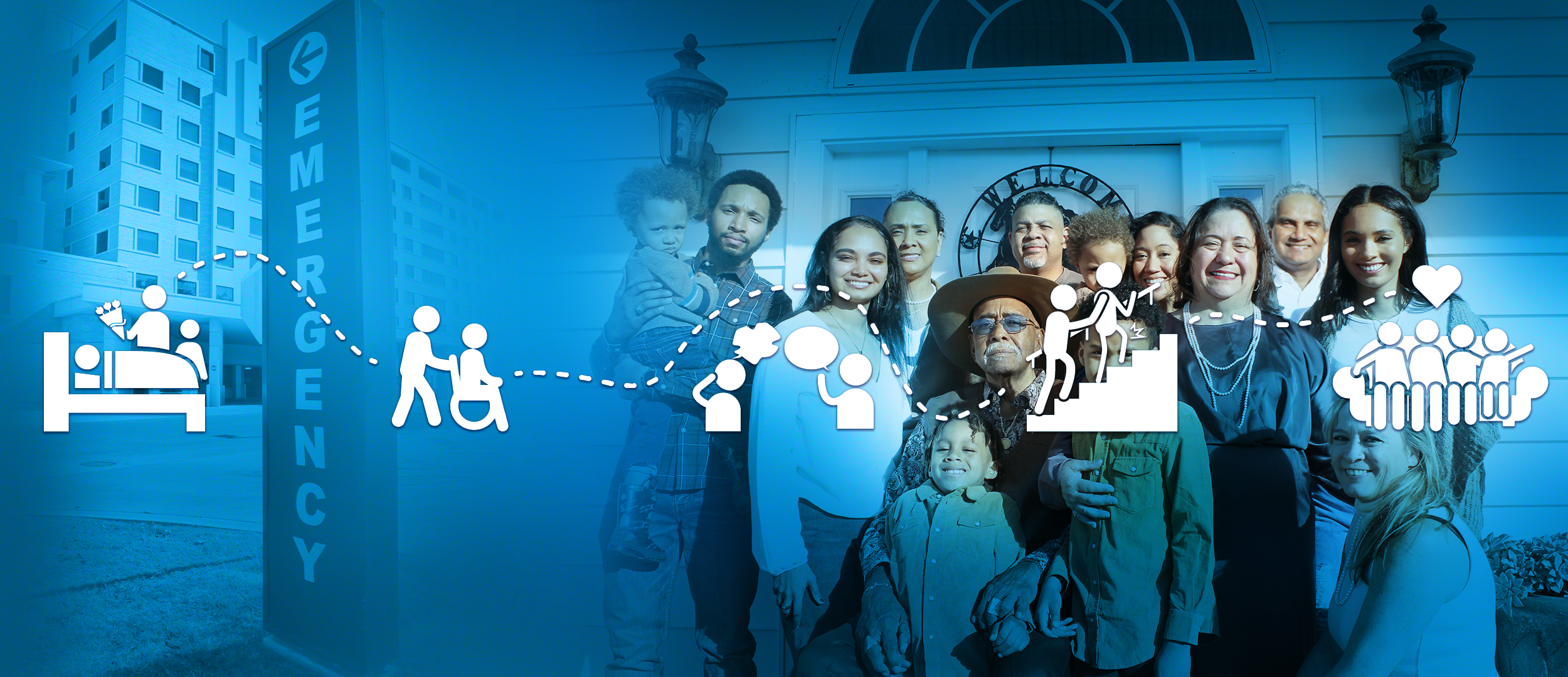Chatbots in med comms: dawn of a new era?
A medical writer’s perspective
AI-assisted language models, and in particular, ChatGPT, have recently caused quite a stir in the med comms field. Many articles and posts have gone viral where medical writers prove that they cannot be replaced by AI. But is there a role for these so called chatbots in med comms?
But first the nitty-gritty – what exactly is ChatGPT?
ChatGPT (Chat Generative Pre-trained Transformer) is AI technology developed by OpenAI that can generate human-like natural language in response to prompts within a matter of seconds. The largest natural language model to date, it was created by pre-training a deep neural network on a massive dataset of text from the internet.1
If you haven’t yet given it a whirl, its overall accuracy, and the speed in which the answers are generated are quite remarkable.
The potential of chatbots in med comms
It is undeniable that chatbots (and I say chatbots because I believe that ChatGPT is just the tip of the iceberg) offer huge potential in the med comms field. They are ideal for learning a new field, drafting and ideation, content outlines, summaries, abstracts and blog posts (to name a few). Med comms teams, often find themselves working to tight deadlines, and chatbots can drastically help improve efficiency.
ChatGPT is not without its caveats
Since ChatGPT cannot vet its sources for accuracy, it does make mistakes. Furthermore, it does not provide the sources for the text it generates. As such, OpenAI, who are presumably in the process of doing so, need to address the issues of plagiarism, copyright and referencing. Moreover, the input datasets of ChatGPT are not updated in real time and the current version is based on datasets from 2021. The purpose of ChatGPT is for general content creation and it is not specific to the medical field. One might envision a future where a healthcare specific chatbot is trained in real time on carefully manually curated reputable data. Perhaps a job for the medical writer?

Will AI language models make medical writers obsolete?
Medical writing involves more than just writing, with detailed medical knowledge, strategy, and analytical skills essential to good medical communications. Chatbots are unable to determine the quality or accuracy of the output, and hence, this needs to be evaluated by a subject matter expert. And in the words of ChatGPT, ‘No, ChatGPT is not likely to replace medical writers. While it can assist in generating text, medical writing involves more than just writing skills, including specialized knowledge in medicine, regulatory guidelines, and ethical considerations, which are best handled by trained professionals.’2
The evolution of AI in mining and producing texts has been astounding, with more exciting developments on the horizon. However, chatbots should be viewed as tools to assist and improve the content development process. AI-generated content requires expert review to ensure accuracy and clarity, to add context and insight, and in some cases, add a personal touch. These tools can drastically improve throughput leaving med comms agencies more time to focus on creativity, messaging, and strategy.
If you are interested in finding out more about how our medical writing services can provide specialised, carefully constructed, tailored solutions to meet your needs, please contact us at info@infill.com.
References
- Samuel Greenhard. ChatGPT: Understanding the ChatGPT AI Chatbot. https://www.eweek.com/big-data-and-analytics/chatgpt/. Accessed 30 January 2023.
- https://chat.openai.com/chat. Accessed 30 January 2023.









